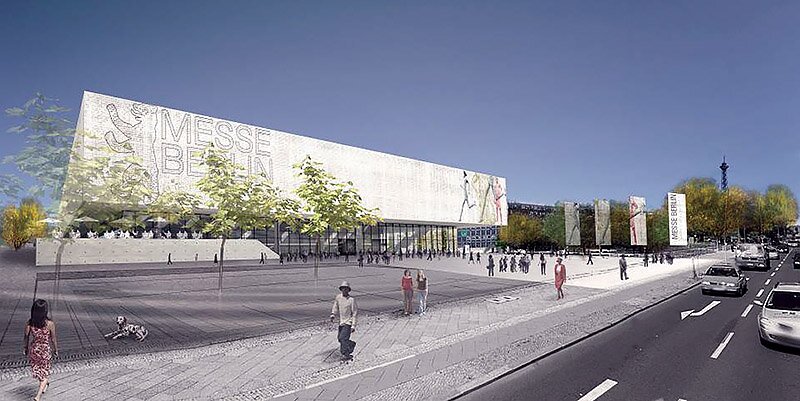Congress Venue
Berlin, the Capital City of Germany has been chosen as the city to host the 2019 Congress. Berlin is a modern metropolis of world-class standing and has undergone more changes in recent years than any other European capital and is still changing today. Berlin is also one of the largest science hubs in Europe and has Europe’s highest concentration in research and universities that have their main focus on Life Sciences. Berlin is ranked number 5 in the world as a Congress venue by the ICCA.
The Congress will take place in the new CityCube Berlin (CCB) which is one of the capital’s most architecturally exciting new building. It offers a spacious and comfortable environment, made up of approximately 12,000 sqm, will Will provide enough space to enable the Congress to be run on one site, allowing considerable social and professional interaction amongst delegates.
Berlin Attractions
Berlin is a summer city with the warmest months being June, July and August when temperature exceeds 20°C and the sun shines about 8 hours per day.
Berlin has high-quality entertainment, trendy shopping districts, a diverse gastro scene and the world famous clubbing culture – Berlin has it all. From a quick snack to dinner at a gourmet restaurant, international cuisine, theme restaurants, beer gardens and regional cooking -Berlin’s 7,000 restaurants and eateries cater for every taste, any occasion, any time of the day or night. There are virtually no licensing hours in Berlin to hinder the visitor from enjoying this multicultural mix to the fullest.
When the Berlin Wall came down, there was a unique historical opportunity to redesign the entire city centre. The names of those involved in rebuilding projects for post-Wall Berlin read like a “Who’s Who” of contemporary architecture. The colourful and varied in-quarter cultures are reinventing themselves and afford a special quality of life.
Ecology, environmental compatibility and sustainability are part of life in Berlin and ensure that the metropolis is seen as a good place to live by both inhabitants and visitors alike. Berlin is Germany’s greenest city with over 30% of its surface area is covered by parks, forests, rivers, lakes and 180 km navigable waterways. It is ideal for extended bicycle tours, relaxation and boat trips. The Tiergarten, right in the heart of Berlin, is the World’s largest city park.
By western standards Berlin is a very safe city in which everyone can move around freely without fear. Berlin has had a falling number of crimes for years and the highest clear-up rate in Germany. Road and traffic conditions are excellent as well as the advanced video surveillance in local public transportation, especially in the underground and suburban train stations. Not least because of its favourable geographical position, outside of the catchment area of natural disasters such as hurricanes, typhoons or earthquakes, Berlin is an exceptionally safe city.
Accommodation
Berlin has one of the most state-of the-art hotel landscapes in Europe. It has an outstanding selection of accommodation with more than 779 hotels with over 125,000 hotel beds affording guests the largest choice of modern hotels in Europe. Berlin is a reasonably priced European metropolis offering very good value for money. Berlin also offers many opportunities for affordable accommodation in apartment hotels, student facilities and youth hostels which will be available for delegates attending the Congress on limited budgets.
Transportation
Berlin is located in the heart of Europe and has excellent road, rail and air links to national and international cities. The German capital’s airports already cater for around 20 million passengers. There are a large number of flights to and from international destinations and regular flights to the main German hubs of Frankfurt and Munich. Berlin is also served by a range of budget airlines making it an affordable destination for many people.
Berlin is part of the Intercity Express, Intercity, Euro City and InterRegion network and is easily accessible from everywhere. The new railway station Hauptbahnhof is located in the middle of the European railway hub and easily accessible from all over Europe.
Berlin is served by an attractive, extensive, comprehensive and interlinked network of 9 underground lines (U-bahn), 15 Suburban railway lines (S-bahn), 185 bus lines and 23 tramlines with many offering a night service. No other European metropolis has more underground lines which operate through the night at weekends.

